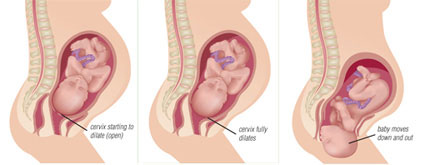During delivery some women may take help of birthing techniques whereas some women may prefer pain medications to ease the pain. Let us take a look at different medications used for relieving pain during delivery.There are different types of medications that can help you to deal with pain during labour and delivery easily. Therefore, you need to have a discussion with your doctor so that you can know about the pain relief options beforehand. Your doctor may suggest the best possible option that is suitable for you. Read on to learn about the various concerns of women about taking pain relief drugs during labour and delivery.
I have decided not to take any drugs during labour
Generally, people prefer not to use any drugs because they are known to dim your awareness of the process and deprive you of a unique experience. But not many know the amount of pain that they can bear without relief. So even if you have decided you do not want to use pain-relieving drugs during
labour, it is important to know the kinds of relief available to you. You can use regional anaesthesia, inhalation analgesics, narcotics or sedatives and tranquilizers.
What kind of pain-relieving drugs can one take during labour?
Here are some of the pain-relieving drugs that one can take during labour.
Regional anaesthetic:These are helpful to remove sensations of pain by blocking the transmission of pain from the nerve fibres. It does not have any negative effect on the mother as well as the baby. However, it may not be able to provide complete relief from the pain caused due to contractions.
Inhalation analgesics:These consist of gases that include Entonox (oxygen and gas) and works to numb the pain centre in the brain. As the contraction starts, you are required to put on the mask and inhale deeply. You will feel as though you are floating.
Narcotics:The most commonly used narcotic is pethidine (derived from morphine). This is injected into the thigh or buttock in the first stage. It acts on the nerve cells in the brain and spine. Doctors will start with a small dose at first to gauge its effect on you. It may not help you to get rid of pain completely and may even cause effects like nausea and sleepiness.
Sedatives and tranquilizers:These help in reducing anxiety, control
nausea and lower blood pressure. But they also make you feel sleepy. On the plus side, you will get to rest well between contractions. Commonly used ones are Sparine and Chloral.
What are the different kinds of regional anaesthetics?
Have a quick look at the different kinds of regional anaesthetics.
Caudal anaesthesia: - It is injected into the spinal area and numbs your vagina and perineum. As this provides relief for a short span, it is ideal for vacuum extractions and
forceps deliveries.
Pudendal Nerve Anaesthesia: - If you need an
episiotomy, then anaesthesia is injected straight into the vagina, near the pelvis, to block the pudendal nerve.
Epidural: -The most popular form of this anaesthesia is the epidural block.
What is epidural and when is it useful?
An epidural is the most popular form of a regional anaesthetic. It blocks out all sensation from your waist to your knees, but more importantly, you remain alert. The doctor may recommend using an epidural if you having a difficult labour, preeclampsia, asthma, a forceps delivery or a
caesarean section. It serves as a 'nerve block' in your spine, thus preventing pain from spreading from your uterus.
What are the different types of epidurals?
You can discuss with your doctor about the different epidurals that can be taken to get relief from pain. Your doctor may recommend the one that suits you the best. Traditional epidurals and walking epidurals are the types of epidurals used for relieving pain during labour. The traditional epidural starts showing its effect within 20 minutes whereas walking epidurals start working within two minutes of injecting the two shots.
Pain medication can really be very helpful to ease the pain during labour and delivery. So, if you have started preparing yourself for labour and delivery, you must talk to your doctor about how you can manage pain during labour and delivery.





























